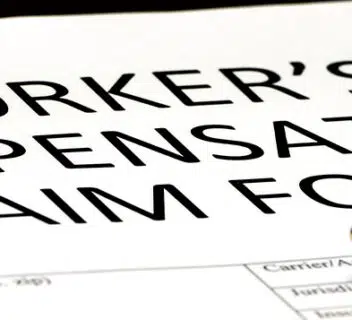Can I sue my employer? Yes, but it depends on the specific circumstances surrounding your claim. If your employer has violated workplace laws, such as through discrimination, wage theft, or wrongful termination, you may have grounds for legal action. This article will guide you through your rights, potential grounds for suing, and steps to take before filing a lawsuit.
Key Takeaways
- Employees have robust legal rights protected by state and federal laws against discrimination, harassment, wage violations, and wrongful termination, making it essential to understand these rights.
- Grounds for suing an employer include workplace discrimination, wage and hour violations, and wrongful termination; meticulous documentation and legal consultation are crucial before taking action.
- The legal process for suing an employer involves filing a complaint, gathering evidence, and potential settlement discussions, with the possibility of a trial if necessary; exploring alternative dispute resolution options is also advisable.
Understanding Your Legal Rights as an Employee
Employees are entitled to various legal rights that protect them against unfair treatment and workplace hazards, including employees’ rights and workplace rights. These rights provide the basis for legal claims if violated on legal grounds. State and federal laws safeguard against discrimination, retaliation, and wage violations, enabling legal action when necessary. Employment rights are essential in ensuring that employees are treated fairly.
Employment laws offer robust protections against issues like discrimination, harassment, retaliation, wage and hour violations, and wrongful termination, in accordance with the applicable statute. Federal laws such as the Civil Rights Act and the Americans with Disabilities Act (ADA) enhance these protections, ensuring fair treatment against employment discrimination regardless of race, color, religion, sex, national origin, age, or disability.
Understanding your legal rights helps you identify when an employer’s actions are unlawful, such as violations of anti-discrimination laws or wrongful termination, and equips you to take appropriate legal action.
A qualified employment lawyer can clarify your rights and guide you through legal requirements, ensuring you are well-prepared to take action against your employer if needed under specific law.
Grounds for Suing Your Employer
Understanding the grounds for suing your employer is crucial. Legal action can be taken if workplace laws are violated, whether through ignorance or deliberate disregard. Common issues leading to lawsuits include workplace discrimination, wage theft, and wrongful termination, which breach legal requirements and create a hostile work environment.
Discrimination in hiring, promotion, or other employment actions based on protected characteristics can lead to legal action against an employer. This includes unfair treatment based on race, gender, age, or national origin. Wage and hour violations, such as unpaid wages and failure to pay overtime, also constitute strong grounds for a lawsuit.
Before filing a lawsuit, document everything meticulously and consult an experienced employment lawyer to assess your case and gather evidence. Legal representation is essential for protecting your rights and navigating the complexities of employment law.
Workplace Discrimination
Workplace discrimination can take many forms and is prohibited under several key laws:
- The Civil Rights Act prohibits discrimination in employment based on race, color, religion, sex, and national origin.
- The ADA protects workers from discrimination based on disability and requires employers to provide reasonable accommodations.
- Discrimination claims can arise from unfair treatment during hiring, promotion, or termination based on protected characteristics.
In cases of workplace discrimination, seeking legal guidance is vital. An experienced employment law attorney can help you understand your rights and navigate the legal process, whether it’s due to failure to make reasonable accommodations or discriminatory practices.
Wage and Hour Violations
Fair pay and working conditions are fundamental rights protected by various labor laws. Violations of wage and hour laws can constitute grounds for employees to file a lawsuit against their employer. Wage and hour violations often include:
- Off-the-clock work
- Failure to pay overtime pay
- Unpaid wages, employers are required to:
- Pay at least the minimum wage
- Provide overtime compensation for hours worked over 40 in a week.
If you experience wage violations, consulting an experienced labor lawyer is advisable. They can help you file a claim and guide you through the complexities of wage and hour laws. Issues like employee misclassification, withheld tips, and payment below minimum wage can be litigated.
Wrongful Termination
Wrongful termination refers to unlawful firings from employment. This can include being fired based on race, gender, age, national origin, or in violation of federal or state labor laws. Legal protections exist to prevent wrongful termination based on discrimination, retaliation, or harassment. If you believe you have been wrongfully terminated, consulting a qualified employment lawyer is crucial, especially in cases of employer firing.
An employment lawyer can help determine if you have grounds for a legal claim and guide you through filing a lawsuit. Constructive termination, where an employee resigns due to unbearable conditions, is another form of wrongful termination that can lead to legal action.
Can You Sue for Workplace Harassment?
Workplace harassment, including sexual harassment and discriminatory behaviors, is prohibited under federal and state laws. Employees have the right to work in an environment free from harassment and retaliation. If an employer is aware of the harassment and fails to take corrective action, the employee can sue their employer. Common reasons for suing include creating a hostile work environment or failing to act on harassment complaints.
If you experience workplace harassment, report the incidents, document everything, and seek legal advice. An experienced employment lawyer can guide you through the process and help you file a lawsuit if needed.
Workers’ Compensation and Employer Liability
Workers’ compensation benefits are designed to provide financial support for individuals who suffer an on-the-job injury. These benefits can cover lost wages, medical expenses, and rehabilitation costs related to the workplace injury. However, there are situations where employees can sue for additional damages if their injuries are not fully covered by workers’ compensation.
In cases of gross negligence or intentional harm, employees may pursue legal action for additional damages. If an employer refuses to provide workers’ compensation benefits, the employee should contact a lawyer to start a claim. Consulting a workers’ compensation attorney ensures you receive the benefits and compensation you deserve.
Eligibility for Workers’ Compensation Benefits
Eligibility for workers’ compensation benefits requires showing that the injury occurred in the course and scope of employment. Most employees are covered, but certain workers, like independent contractors, are not eligible. Workers’ compensation benefits cover lost wages and medical expenses linked to injuries suffered on the job.
Consulting a workers’ compensation attorney promptly after an injury ensures you receive the benefits you are entitled to and helps navigate the complexities of workers’ compensation laws.
Suing for Additional Damages
In some cases, employees may need to sue for additional damages if their injuries were caused by gross negligence or intentional harm from the employer. These damages can include pain and suffering, emotional distress, and other losses not covered by workers’ compensation benefits.
If you believe your employer acted recklessly or maliciously, an experienced attorney can help you file a lawsuit for additional damages, seeking justice and holding employers accountable.
Retaliation: Protecting Your Rights
Retaliation occurs when employers take adverse actions against employees for engaging in protected activities, such as reporting discrimination or harassment. Legal protections exist to prevent retaliation and protect employees who inquire about their rights or report violations. If you experience retaliation, documenting incidents and seeking legal advice are crucial steps.
Employees who face retaliation can sue for wrongful termination if fired for discriminatory reasons or retaliation. Being aware of your rights under anti-retaliation laws can help you navigate the situation effectively and protect your legal rights.
Steps to Take Before Suing Your Employer
Before pursuing legal action, consider the following steps:
- Understand your rights under employment laws and company policies.
- Meticulously document incidents to build a strong case.
- Report workplace issues to your employer or HR to provide an opportunity to resolve matters without litigation.
An experienced attorney can guide you through the legal process and help with necessary court forms. Ensure all internal resolution attempts have been made before filing a lawsuit. Contact 1-800-THE-LAW2 today for a free consultation with an employment attorney in our network.
Document Everything
Strong evidence is vital for building your case. Meticulous record-keeping, including pictures, emails, and other documentation of illegal behavior, increases the likelihood of presenting evidence of a favorable outcome.
Maintaining a comprehensive account of all related incidents, including retaliatory behavior from your employer’s actions and such behavior, can significantly bolster your case.
Report Internally When Safe
Documenting communications with your employer provides evidence and shows attempts to resolve the issue. Witness statements can substantiate claims of discriminatory or retaliatory behavior.
In some cases, leaving your job while suing your employer may be necessary, especially if the work environment is intolerable or poses a risk to your well-being.
Consult an Employment Lawyer
Can I sue my employer? Consulting an employment attorney by calling 1-800-THE-LAW2 is essential for clarity and guidance tailored to your circumstances. An attorney helps you understand your rights, assess case strength, and navigate the legal process, clarifying your legal options and potential outcomes.
Engaging legal representation can bolster your case against employer retaliation. Working with an experienced employment law attorney ensures you are prepared for the challenges of the process and protects your legal rights.
Filing a Complaint with Government Agencies
Filing a complaint with a government agency, such as the Equal Employment Opportunity Commission (EEOC), is often a required step before pursuing a lawsuit. Employees can file a complaint in person at any EEOC office or through the online portal. Charges can also be submitted via mail, but must include specific details about the alleged discrimination. The EEOC conducts investigations to determine if discrimination occurred before an individual can file a lawsuit.
If you want to file a lawsuit before the EEOC completes its investigation, you can request a Notice of Right to Sue. You must file your lawsuit within 90 days after receiving this notice.
Understanding the process of filing a complaint with government agencies helps streamline your legal action and ensures compliance with federal and state laws.
The Legal Process of Suing Your Employer
The legal process of suing your employer includes the following steps:
- Filing a legal complaint that outlines your claim, supporting facts, and requested relief.
- The discovery phase, where both parties gather evidence to support their claims.
- Settlement discussions.
- Potentially a trial.
While trials are depicted frequently in media, most lawsuits are resolved through settlements before reaching that stage. The trial phase is critical, as it is the culmination of the legal process where the judge or jury evaluates the evidence and issues a final decision regarding damages.
An experienced employment attorney can help you navigate this formal process and seek justice against your employer for violating.
Potential Outcomes of Your Lawsuit
The potential outcomes of suing your employer can vary widely based on the specifics of your case. Possible results include financial compensation, policy changes, reinstatement to your job, and in some cases, going to trial. Settlement negotiations can involve terms that include financial compensation, dropping the lawsuit, and stipulations for confidentiality.
Suing your employer can be a challenging process, but it can lead to significant workplace changes, holding employers accountable, and ensuring fair treatment. Consulting an experienced employment law attorney can help achieve a favorable outcome and protect your legal rights. If you feel your situation warrants it, you may consider whether to sue your employer or sue my employer.
Preparing for Possible Retaliation
Employees who face retaliation after reporting discrimination or harassment have grounds to sue their employer. If you experience retaliation after suing your employer, consider the following steps:
- Document incidents of retaliation.
- Seek legal help to file a retaliation claim.
- Consult an employment attorney who can guide you on whether quitting your job might be necessary while pursuing your lawsuit.
You can keep your job while suing your employer, but it may create an awkward environment. Being prepared for possible retaliation and knowing your legal rights can help you navigate this challenging situation and seek justice.
Alternative Dispute Resolution Options
Alternative Dispute Resolution (ADR) encompasses various methods to settle disputes outside of court, including:
- Mediation involves a neutral third party assisting the disputing parties in reaching a mutually acceptable agreement.
- Arbitration: more formal than mediation and includes a binding decision made by an arbitrator or a panel.
- Conciliation: another method used to resolve disputes outside of court.
One of the key benefits of ADR includes:
- Quicker resolutions compared to traditional litigation.
- Flexibility in the process allows parties to customize rules and procedures to suit their needs.
- Confidentiality, as the proceedings are not public like court trials.
Exploring ADR options can help you resolve disputes efficiently while protecting your employee rights.
Summary
Wondering, ‘Can I sue my employer?’ Understanding your legal rights as an employee and the steps to take before suing your employer is crucial for protecting yourself against unfair treatment. From documenting incidents and consulting with a qualified employment lawyer to filing a complaint with government agencies, each step is essential in building a strong case. Whether you face workplace discrimination, wage theft, or wrongful termination, being informed and prepared can help you seek justice and achieve a favorable outcome.
Frequently Asked Questions
Yes, you can sue your employer for workplace discrimination if you experience unfair treatment due to protected characteristics such as race or gender. It’s advisable to consult an experienced employment law attorney to guide you through the legal process.
Before filing a lawsuit against your employer, it’s crucial to meticulously document all incidents and seek the counsel of an employment lawyer to evaluate your case and understand your rights. Reporting issues internally can also be beneficial if safe to do so.
To file a complaint with the EEOC, you can do so in person, online, or by mail, ensuring you provide specific details about the discrimination. Remember, filing with the EEOC is typically a necessary step before initiating a lawsuit.
Suing your employer can lead to various outcomes such as financial compensation, policy changes, or reinstatement. However, many cases are often settled before trial.
Yes, you can keep your job while suing your employer, but be aware that it may create a challenging work atmosphere. If you experience any retaliation, it’s important to document these incidents and seek legal assistance.











